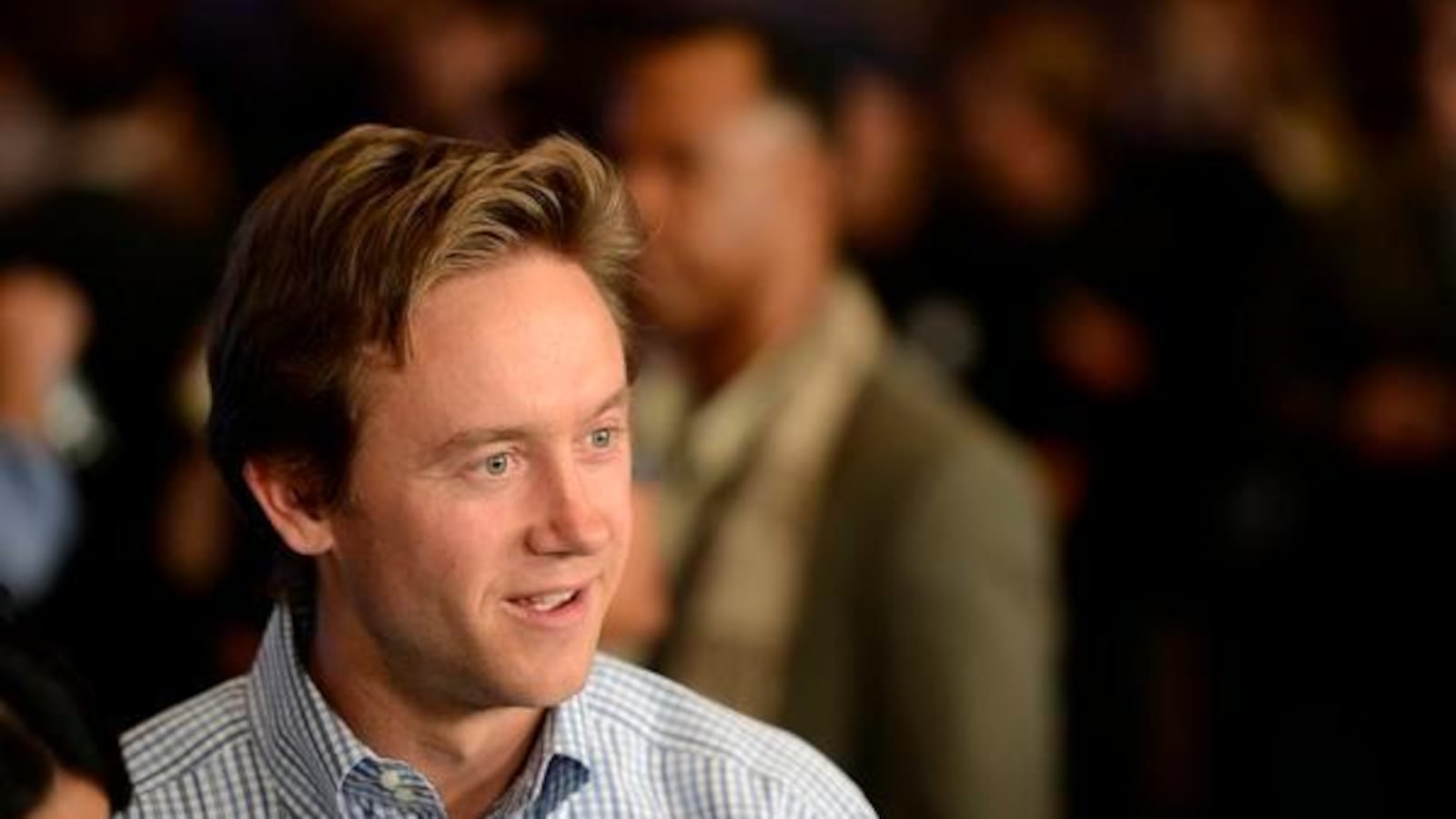State Sen. Michael Johnston, a former principal who designed the state’s landmark teacher evaluation law and is a prominent figure in Colorado’s education reform movement, is considering joining what could be a crowded Democratic primary field for the 2018 governor’s race.
Johnston’s name has appeared in early reports speculating about potential candidates, and he has confirmed to Chalkbeat and other media that he is weighing a run.
Other Democrats whose names have been floated as possible candidates are former U.S. Sen. and Interior Secretary Ken Salazar, U.S. Rep. Ed Perlmutter, and former state Treasurer Cary Kennedy. Democratic Gov. John Hickenlooper, first elected in 2010, is term-limited.
“The question for me is, ‘Where can you make the most impact on the issues you care about?’” Johnston said in an interview Thursday. “(It’s) not ‘What is it that you want to be?’ But, ‘What is it that you want to change?’”
Johnston, whose state Senate tenure will end next month because of term limits, declined to identify possible positions or campaign themes. As a legislator, he focused on a variety of issues besides education, including criminal justice reform, and — to a lesser degree — energy and the state’s rural economy.
Johnston, a Denver Democrat, is considered a rising star in his party. He’s been recognized by TIME magazine and The New York Times. And he’s well-known in education circles inside and outside of Colorado. But his name recognition across the state can’t compare to Salazar’s or Perlmutter’s.
“I have tremendous respect for all the folks who are thinking about it,” Johnston said, but added that potential opponents would not factor into his decision on whether to run.
Democrats in past election cycles have coalesced around one gubernatorial candidate and avoided prolonged primaries, said Seth Masket, a political scientist at the University of Denver.
“It’s been awhile since we’ve seen the Democrats go at it in a primary,” he said.
But that could change now that voters have approved an open primary system in which unaffiliated voters may be able to participate in primary elections. In Colorado, about 36 percent of registered voters are not affiliated with any political party. They make up the state’s largest voting bloc.
“I don’t think we have a good sense of what that means yet,” Masket said. “You may get a wider range of people with different backgrounds. We might see more outsiders throwing their hats into races.”
One challenge facing a potential Johnston candidacy is his work on teacher evaluations and other reforms, which has put him at odds with the Colorado Education Association, the state’s largest teachers union. The union and other labor groups play a large role in Democratic politics.
Johnston, 42, was born and raised in Vail.
After graduating from Yale, he joined Teach For America, a nonprofit that recruits college graduates to teach for two years, typically in low-income neighborhoods. Johnston taught in Mississippi and wrote a book about the students he met.
He later got a master’s degree in education from Harvard and a law degree from Yale. During this time he consulted on a number of political campaigns, including Tom Strickland’s unsuccessful 2002 Senate bid.
In 2005, he was hired by Mapleton Public Schools to lead a new high school in Thornton, a suburb of Denver. The school served mostly low-income black and Latino students.
In 2008, he was an education adviser to Barack Obama’s 2008 presidential campaign. Obama delivered a key education speech at Johnston’s school.
Johnston was appointed to the state Senate in 2009. He won his seat in 2010 and was re-elected in 2012.
Johnston currently runs Traverse, a policy consulting firm. He also helps manage a nonprofit that focuses on training civic leaders. He lives with his wife, Courtney, and three children in northeast Denver.

